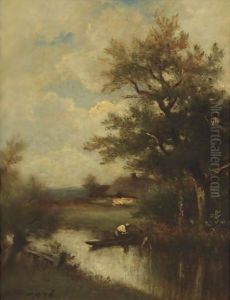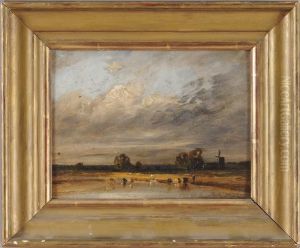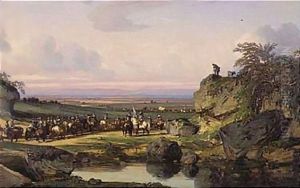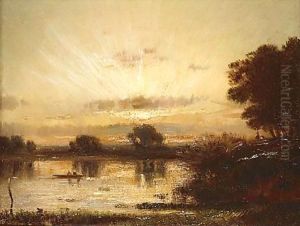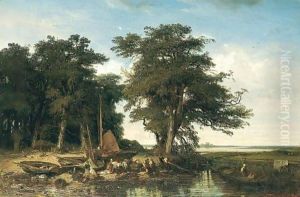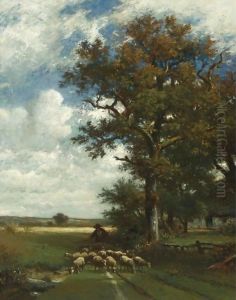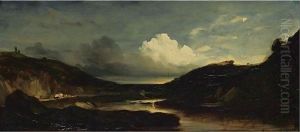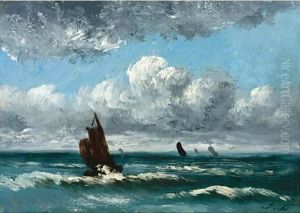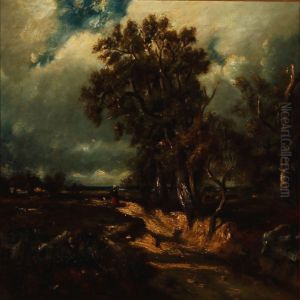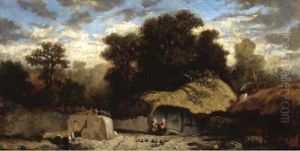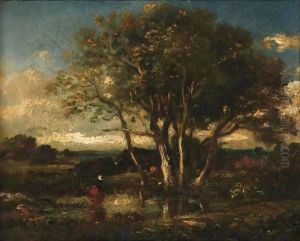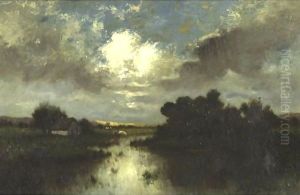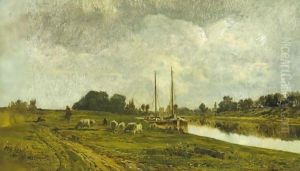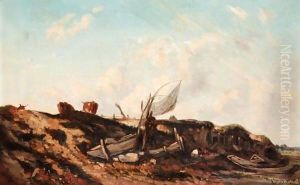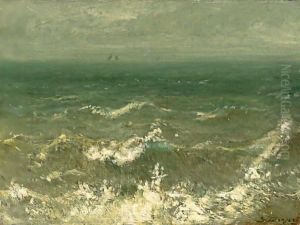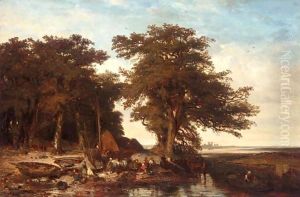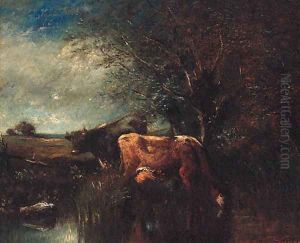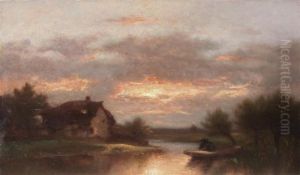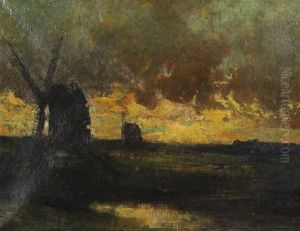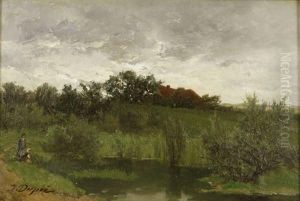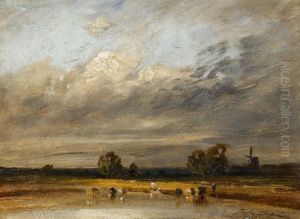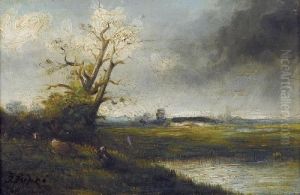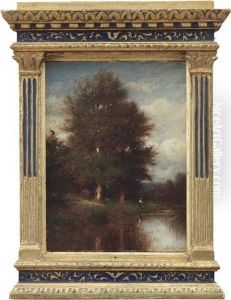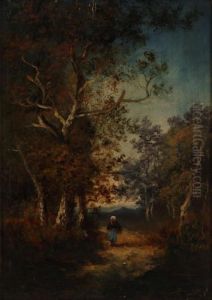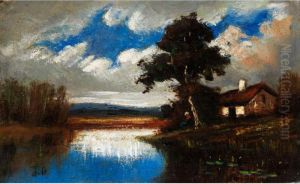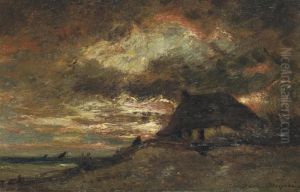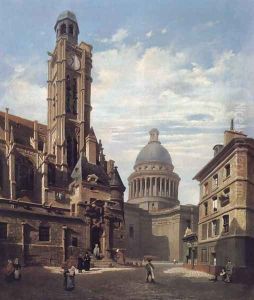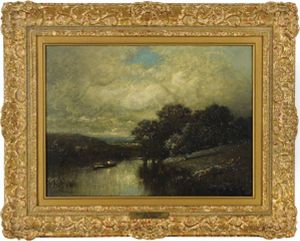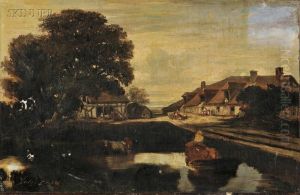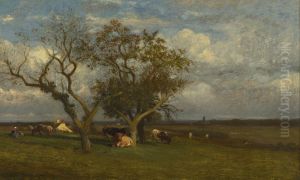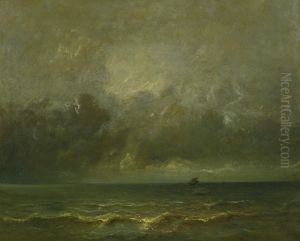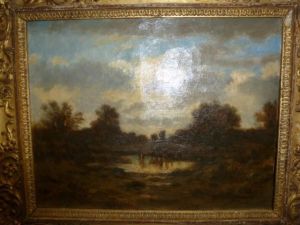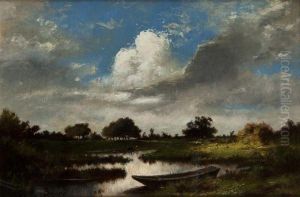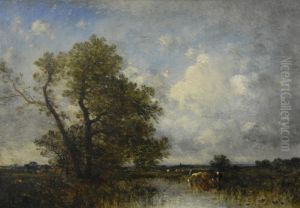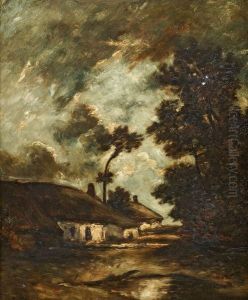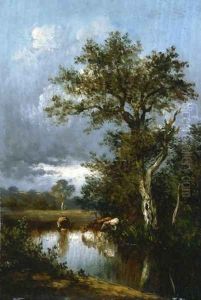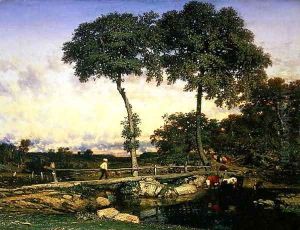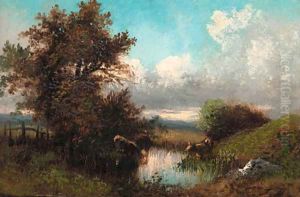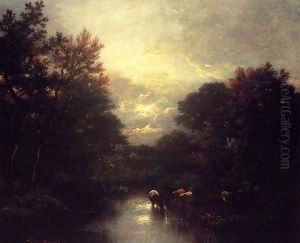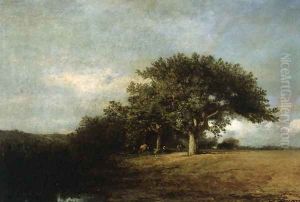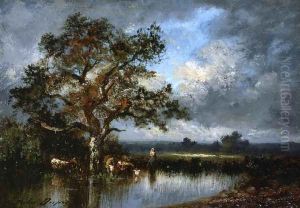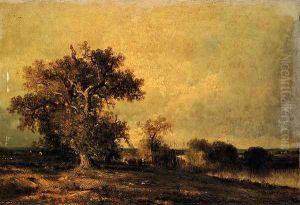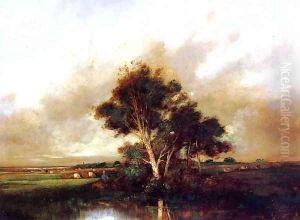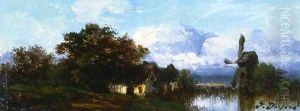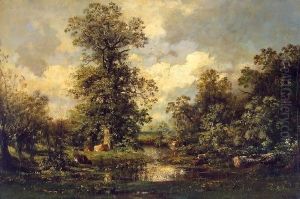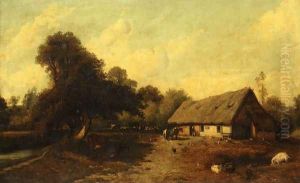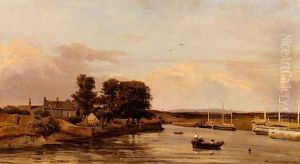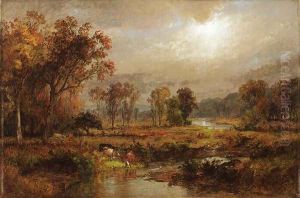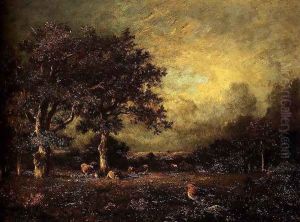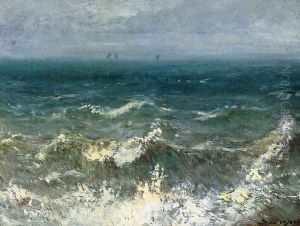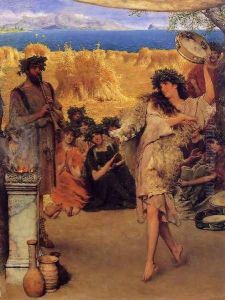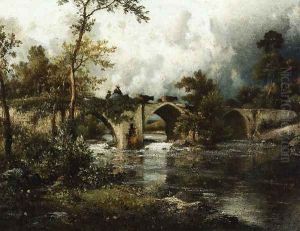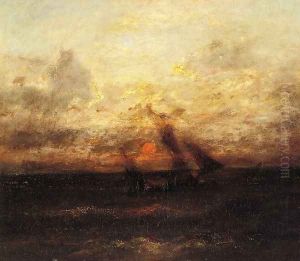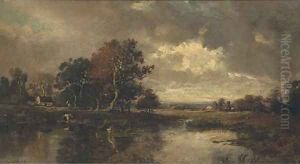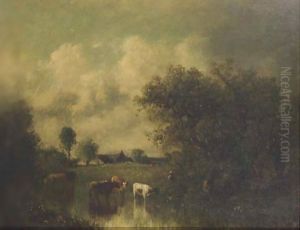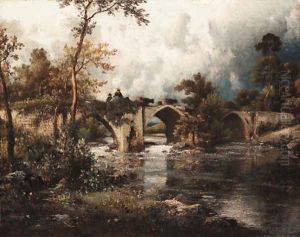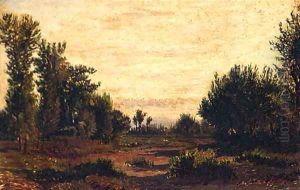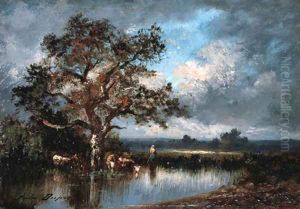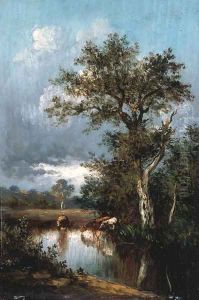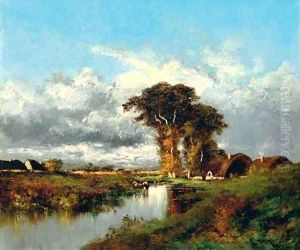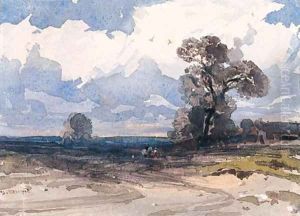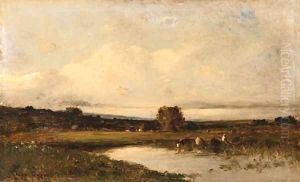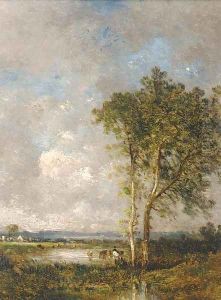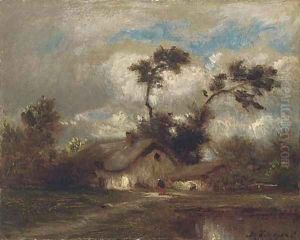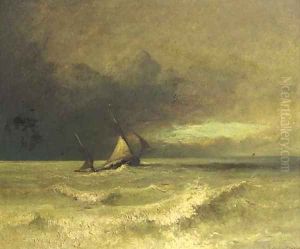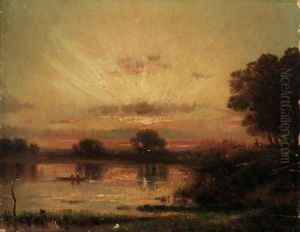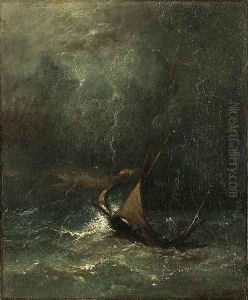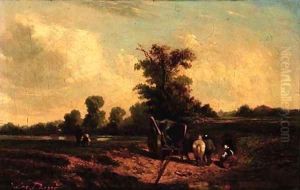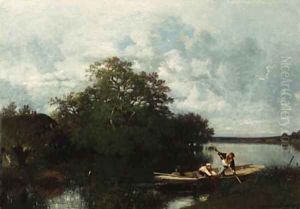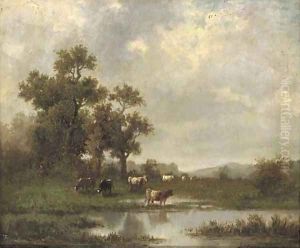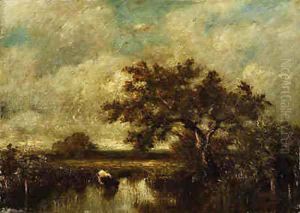Jules Dupre Paintings
Jules Dupré was a prominent French painter, born on April 5, 1811, in Nantes, France. He was one of the leading figures of the Barbizon school, a group of artists who played a pivotal role in the development of landscape painting in France during the mid-19th century. Dupré's early life was spent in the countryside, which deeply influenced his choice of subjects and his approach to landscape painting. Initially, his family moved to L'Isle-Adam, a rural area outside Paris, which provided the young artist with endless inspiration from the natural surroundings. Dupré's career began in the porcelain factories of his father, where he was introduced to the basics of painting. However, his passion for capturing the natural world quickly led him to pursue landscape painting full-time. By the 1830s, Dupré had established himself as a talented landscape painter, known for his dramatic and moody depictions of the French countryside. His early works were exhibited at the Salon, the official art exhibition of the Académie des Beaux-Arts in Paris, where he gained critical acclaim. Throughout his career, Dupré was influenced by the works of English landscapists such as John Constable, whose emphasis on naturalism and the changing moods of the landscape resonated with his own artistic sensibilities. Dupré's landscapes are characterized by their dynamic brushwork, bold use of color, and the emotional intensity with which he portrayed the interplay of light and shadow. His paintings often depicted stormy skies, serene rivers, and rustic scenes that evoke a sense of melancholy and sublime beauty. Dupré was not only a painter but also an advocate for the rights of artists. He played a significant role in the establishment of the Société des Artistes Français, which aimed to improve the conditions and recognition of artists in France. His contributions to French art were widely recognized during his lifetime, and he was awarded the Legion of Honor, France's highest order of merit, for his artistic achievements. Jules Dupré passed away on October 6, 1889, in L'Isle-Adam. His legacy lives on through his influential works, which continue to be celebrated for their contribution to the landscape genre and their embodiment of the Barbizon school's ideals. Dupré's paintings are held in numerous prestigious collections worldwide, including the Louvre in Paris and the Metropolitan Museum of Art in New York, highlighting his enduring impact on the world of art.
